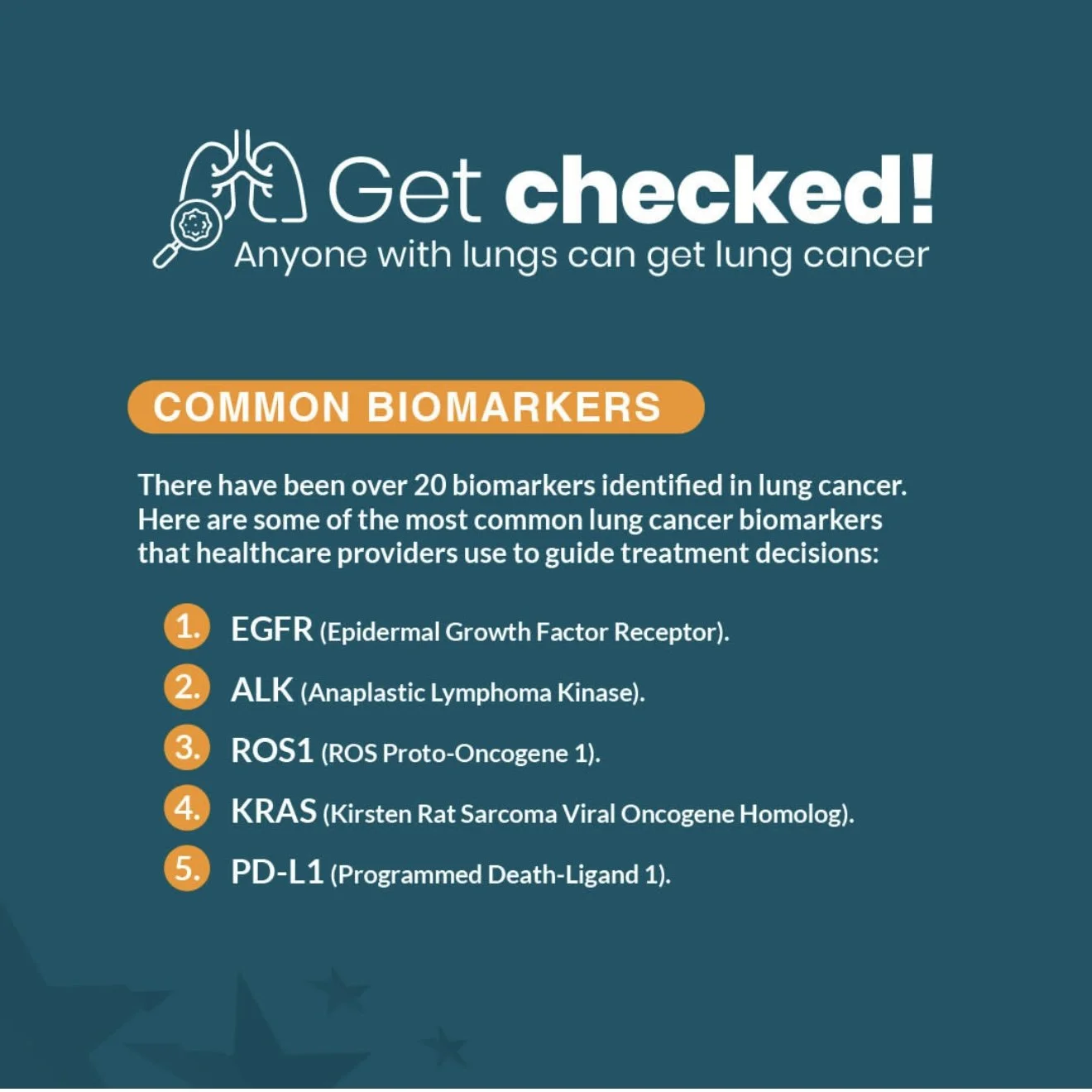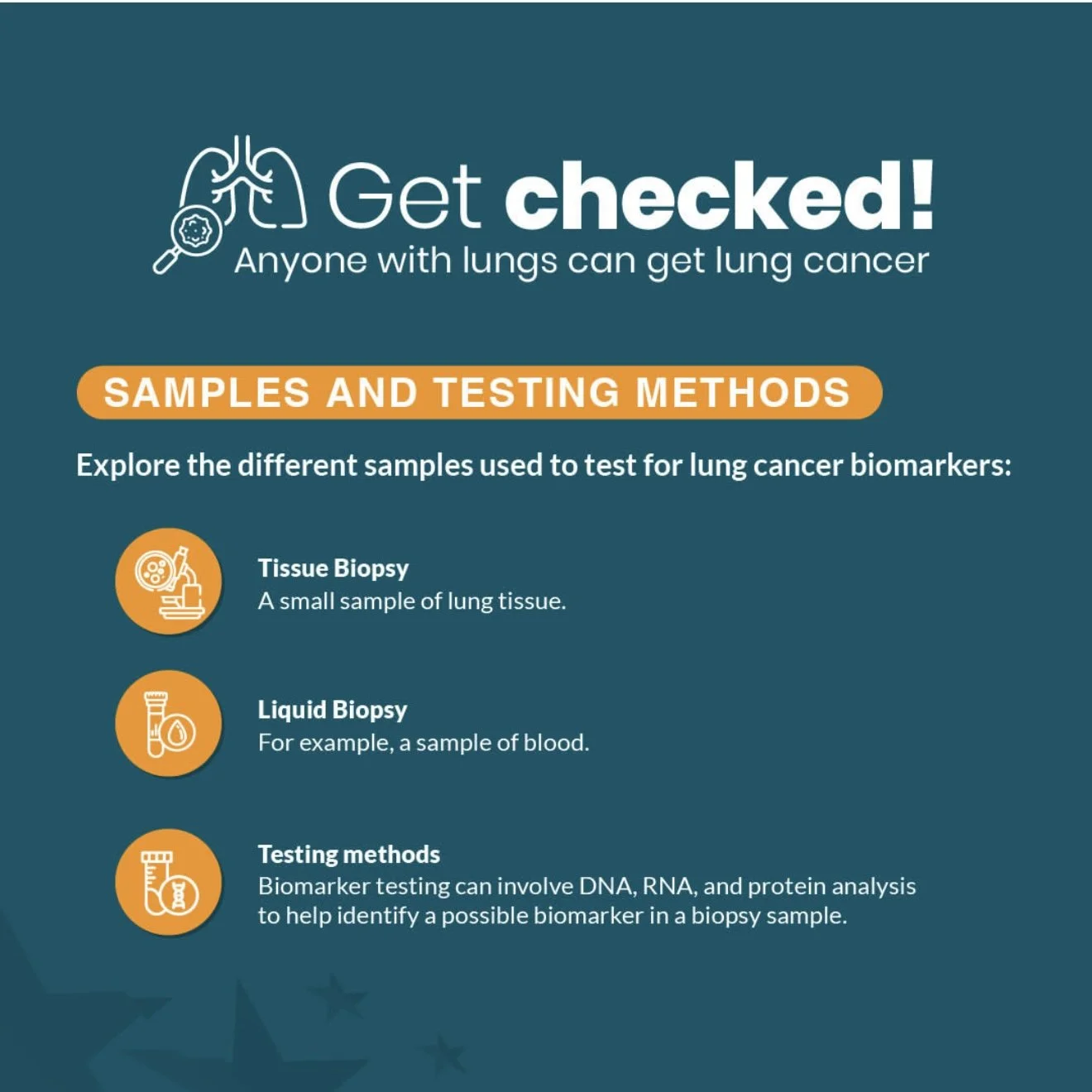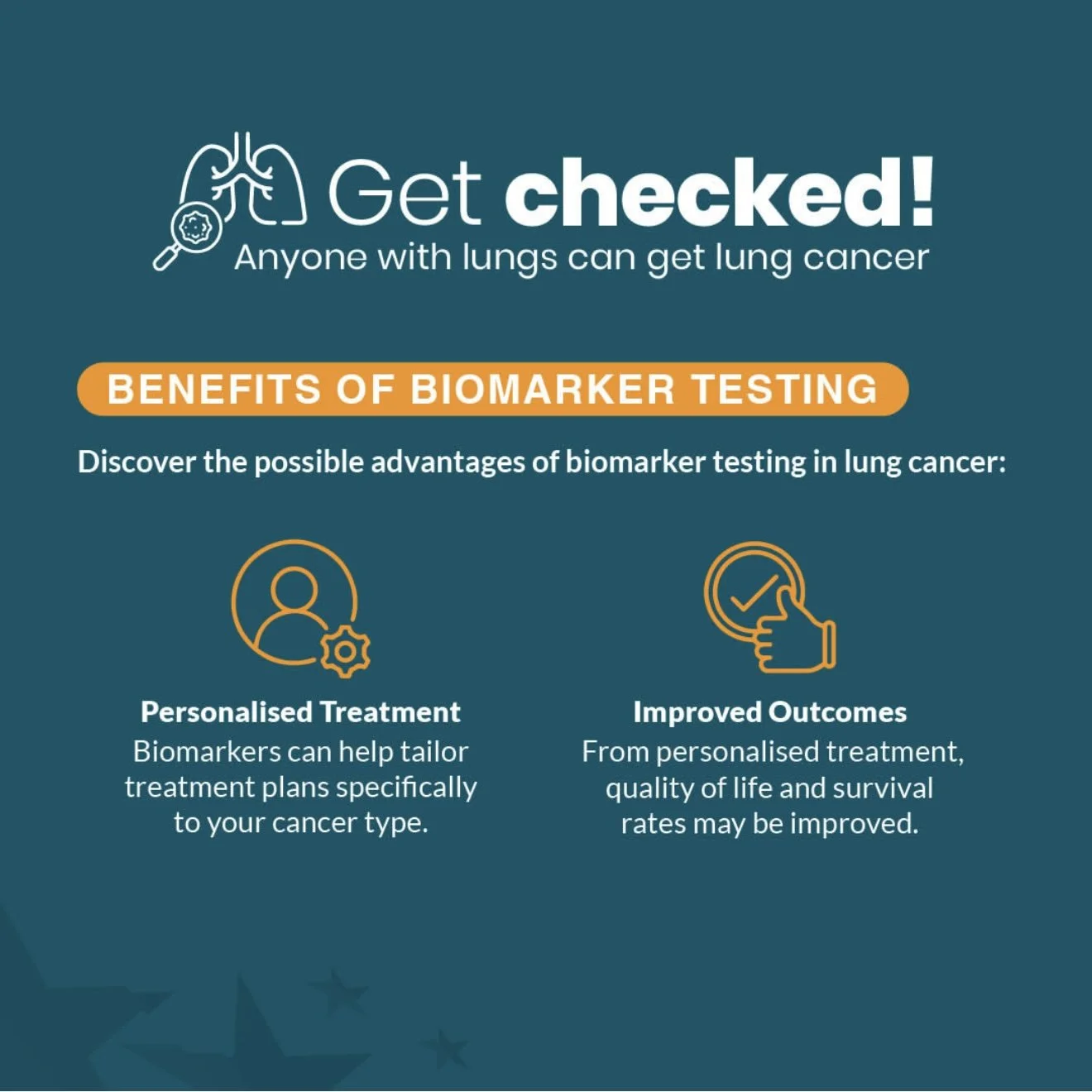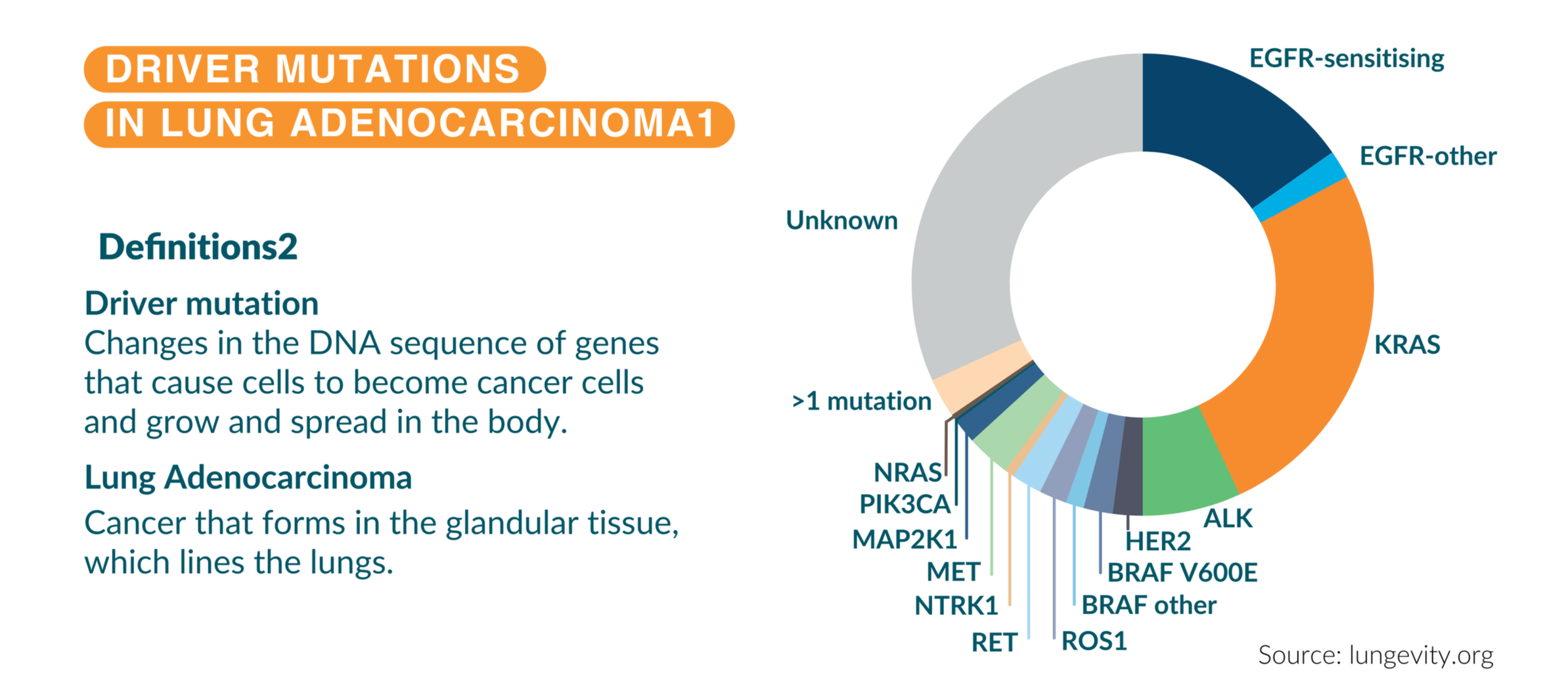Getting a diagnosis of lung cancer can be overwhelming. But knowing what to expect can help you feel more prepared.
How is lung cancer diagnosed and tested?
There’s no single test for lung cancer. Most people will have several checks to help doctors understand what’s going on - from scans and blood tests to looking at tissue under a microscope. These tests are used to find out if it is lung cancer, what type it is, and whether it’s spread.
If it is cancer, some tests also look for changes in the cancer’s DNA (called biomarkers) to help decide which treatment is most likely to work.
How is lung cancer diagnosed?
Diagnosing lung cancer usually starts with symptoms or something spotted on a scan. If your doctor thinks cancer could be a possibility, they’ll arrange more tests. These might include:
Imaging scans - such as a chest X-ray, CT scan or PET scan.
Tissue biopsy - where a small sample of lung tissue is taken to be checked under a microscope.
Liquid biopsy - a blood test that looks for traces of cancer DNA in your bloodstream.
These tests help confirm if lung cancer is present and give more information about the type and stage. This is important so your care team can choose the most appropriate treatment.
What are biomarkers?
Biomarkers are changes in your cancer cells that can be tested for in a biopsy sample. These changes can affect how the cancer behaves — and what treatment might work best.
Some biomarkers are found in the genes of the tumour (like EGFR, ALK or KRAS). Others are proteins found on the surface of cells (like PD-L1).
Your care team may test for biomarkers using tissue or blood samples.
Why is biomarker testing important?
Testing for biomarkers can help:
Match you with a treatment that targets your specific type of cancer.
Avoid treatments that are less likely to work.
Improve your chances of a better outcome.
There are over 20 known lung cancer biomarkers. Some are linked to targeted therapies or immunotherapy. Not everyone will have a biomarker that affects treatment — but testing gives the information needed to make the best plan.






